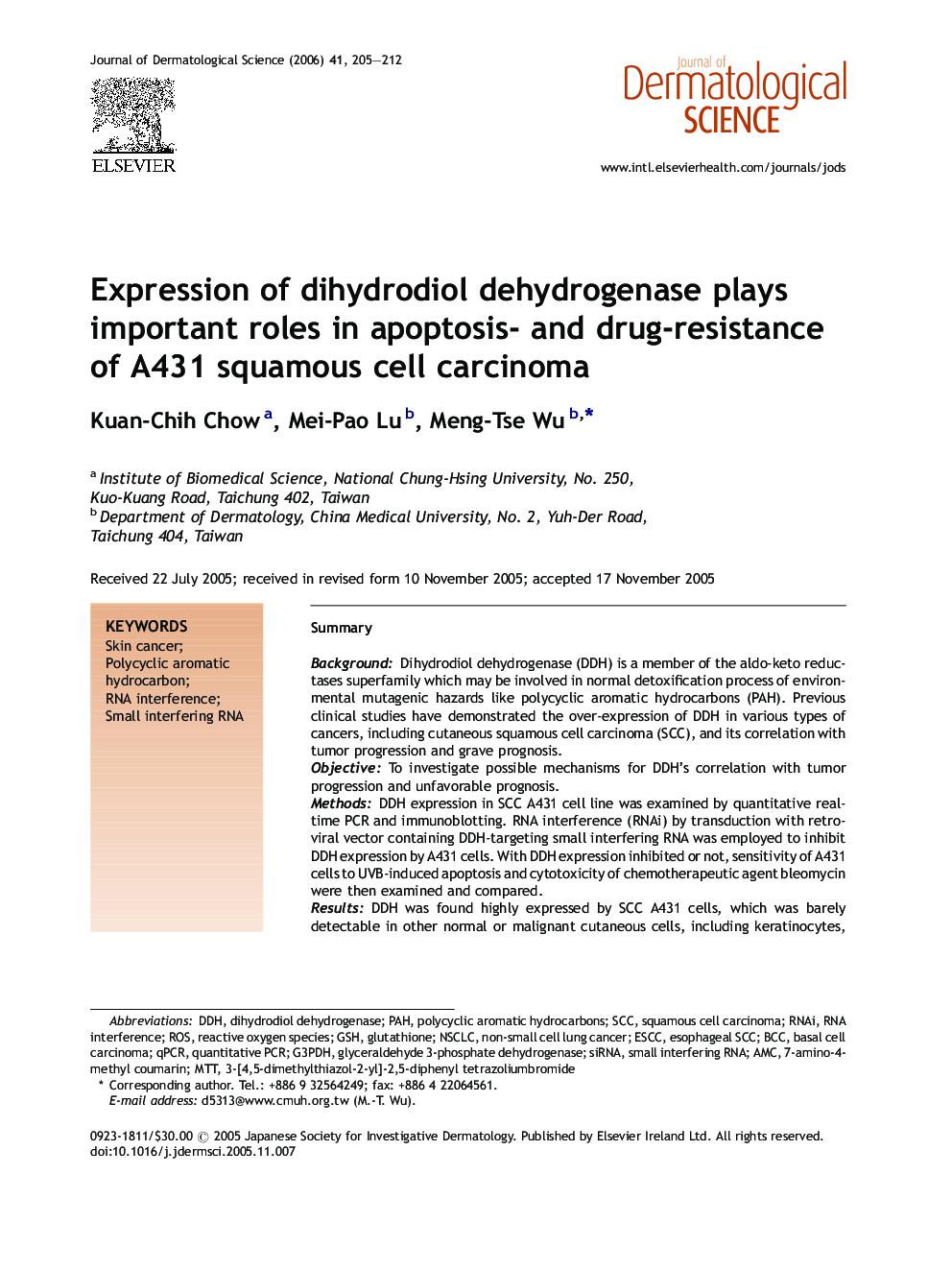| Article ID | Journal | Published Year | Pages | File Type |
|---|---|---|---|---|
| 3214534 | Journal of Dermatological Science | 2006 | 8 Pages |
SummaryBackgroundDihydrodiol dehydrogenase (DDH) is a member of the aldo-keto reductases superfamily which may be involved in normal detoxification process of environmental mutagenic hazards like polycyclic aromatic hydrocarbons (PAH). Previous clinical studies have demonstrated the over-expression of DDH in various types of cancers, including cutaneous squamous cell carcinoma (SCC), and its correlation with tumor progression and grave prognosis.ObjectiveTo investigate possible mechanisms for DDH's correlation with tumor progression and unfavorable prognosis.MethodsDDH expression in SCC A431 cell line was examined by quantitative real-time PCR and immunoblotting. RNA interference (RNAi) by transduction with retroviral vector containing DDH-targeting small interfering RNA was employed to inhibit DDH expression by A431 cells. With DDH expression inhibited or not, sensitivity of A431 cells to UVB-induced apoptosis and cytotoxicity of chemotherapeutic agent bleomycin were then examined and compared.ResultsDDH was found highly expressed by SCC A431 cells, which was barely detectable in other normal or malignant cutaneous cells, including keratinocytes, fibroblast, and basal cell carcinoma cell line. RNAi Inhibition of DDH expression in A431 cells led to increased sensitivity to UVB-induced apoptosis and cytotoxicity of bleomycin treatment.ConclusionDDH may play important roles in tumor progression of SCC via induction of apoptosis- and drug-resistance.
